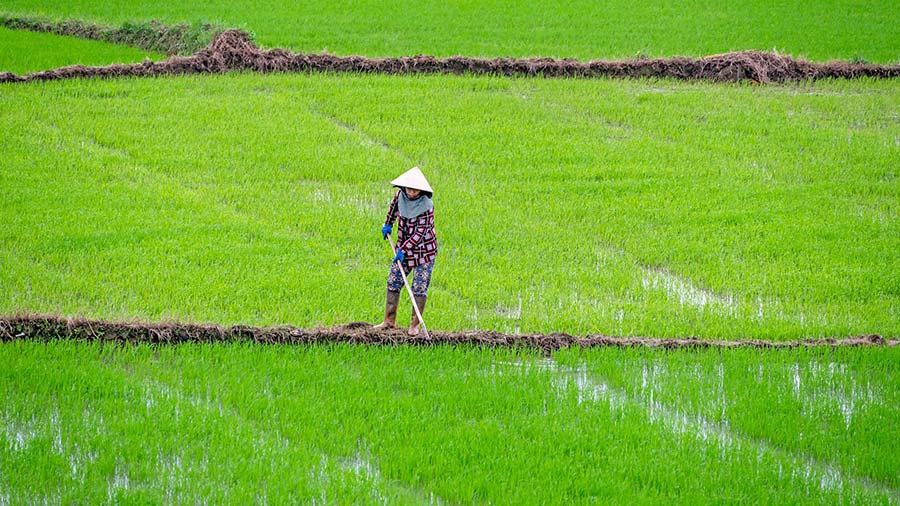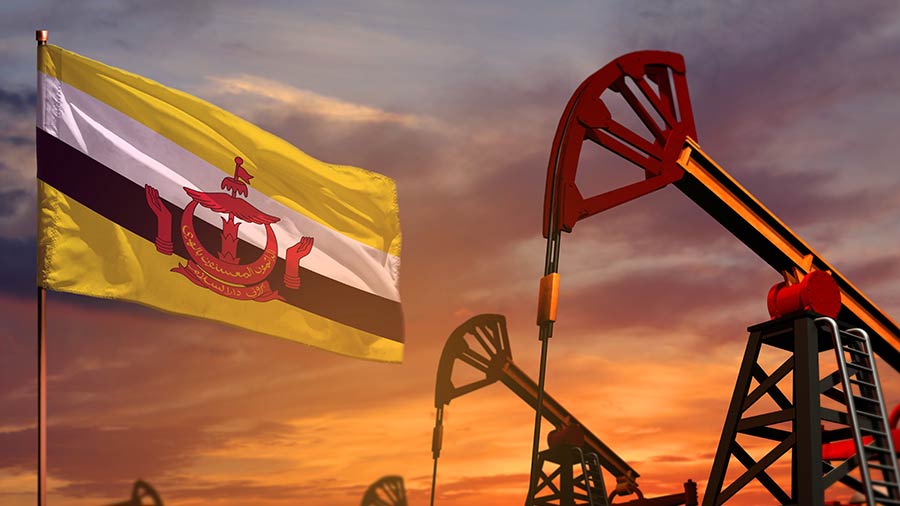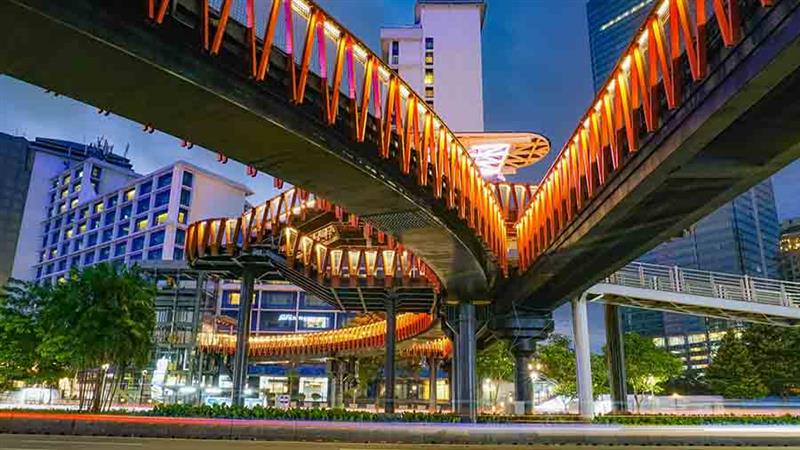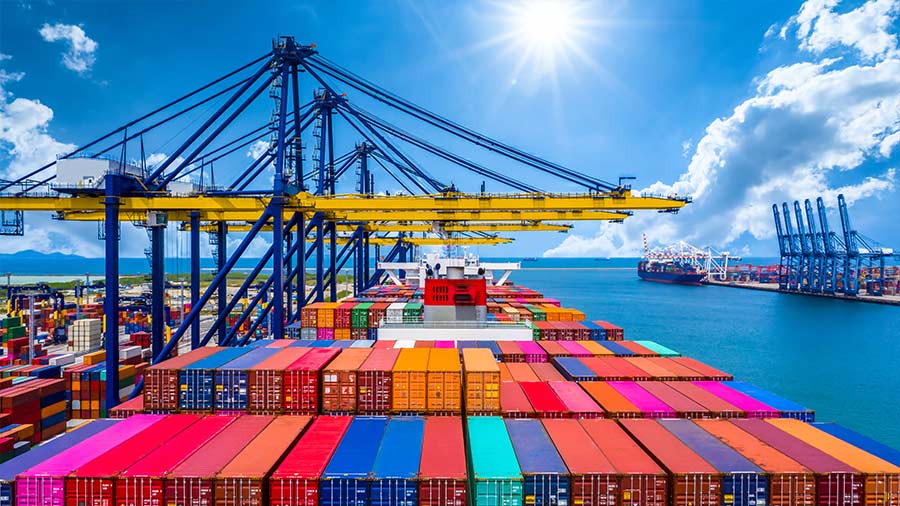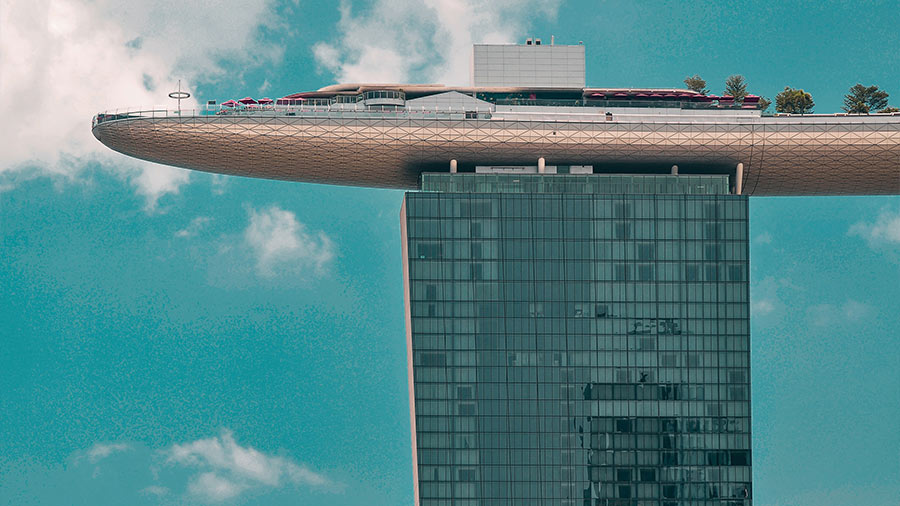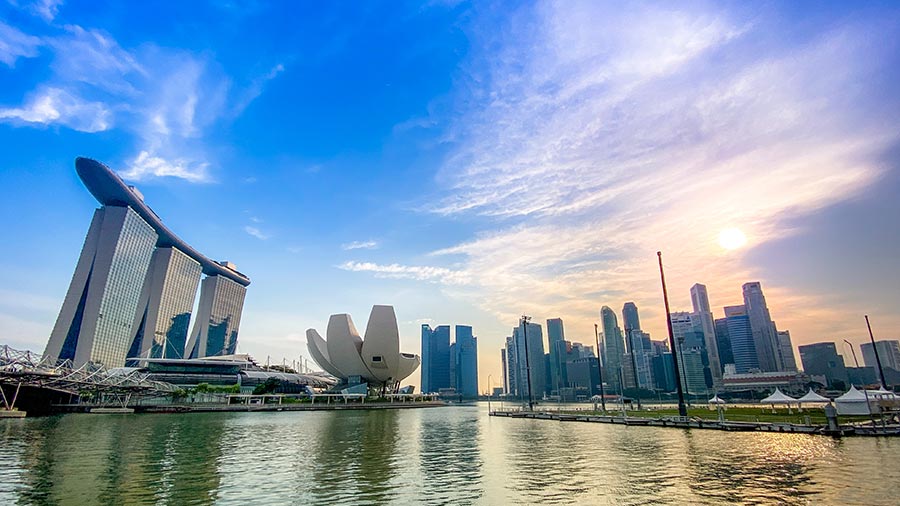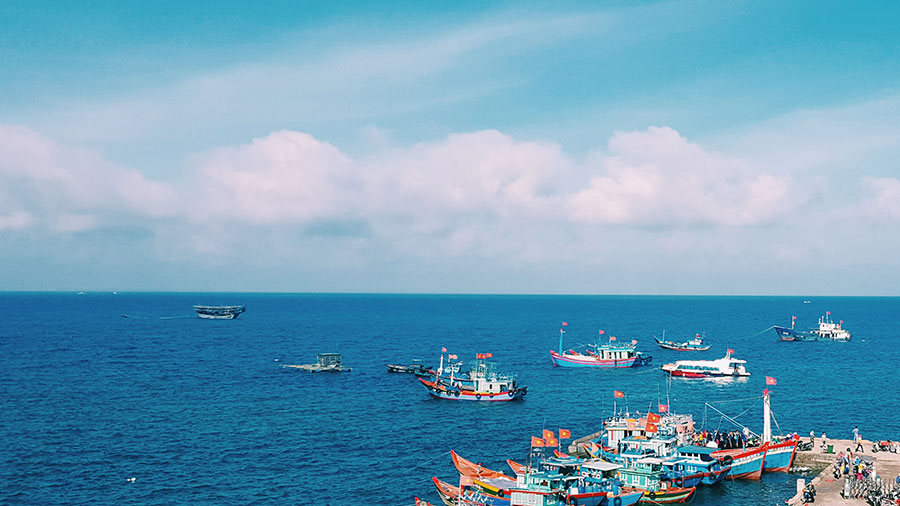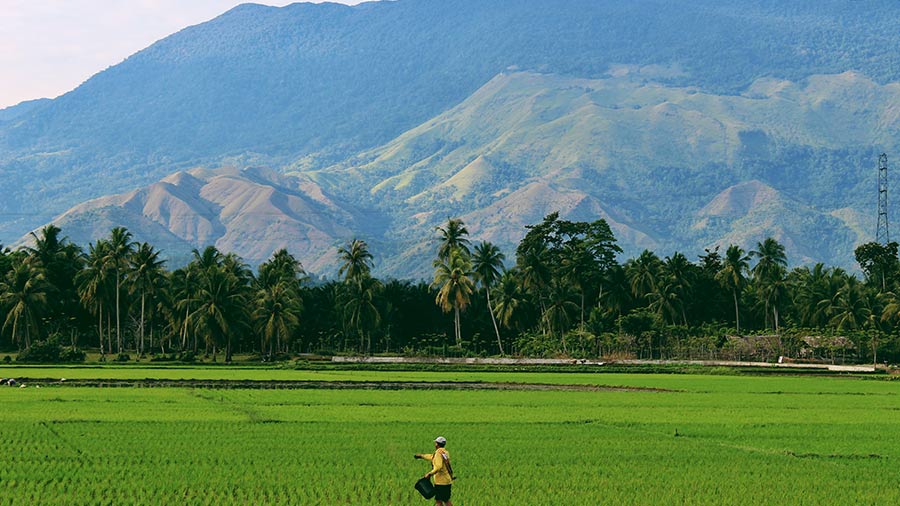Plenty of scope for increased trade and investment as finance and logistics issues are finding solutions.
By Chris Devonshire-Ellis
The ASEAN trade space with Russia has taken a hit during 2022 with sanctions upon Russia having taken a bite out of growth. A cessation of direct flights to any ASEAN cities, Singapore clamping down on Russian investments, and problems with logistics and payment issues have all taken a toll.
That said, ASEAN-Russia trade grew 34 percent in 2021, to reach US$20 billion, although it will struggle to reach that this year. Nevertheless, what trade there is covers a broad spectrum of products, an encouraging platform that both sides are keen to build on - provided new obstacles can be overcome. Some of the ASEAN nations have very positive fits with Russian imports and exports. Having attended the ASEAN-Russia session at the Eastern Economic Forum in Vladivostok yesterday (Tuesday, September 6, 2022) I can outline some of these developments both in terms of institutional progressions in the pipeline and with some of the ASEAN nations themselves.
Financial cooperation
Both Russia and several ASEAN nations have been discussing switching payment processes to national currencies, most notably between the Russian Ruble and the Vietnamese Dong, and the Indonesian Rupiah. It will only be a matter of time before these mechanisms are agreed upon - Russia and India have already put this into place.
The ability for ASEAN nations to be able to access Russia's MIR payment card system, in partnership with the various ASEAN national payment card systems is also under discussion - Vietnam already has such an option. 2023 may well see other ASEAN nations reach agreements to do so.
The Dubai steppingstone
Singapore is a special case as the financial services hub for ASEAN, however, it is currently listed as an 'unfriendly country' by Moscow, and it has become extremely difficult for Russian businesses to establish bank accounts in the country. An option for the 'ASEAN hub' question for Russian businesses in terms of a lack of direct flights and the banking issue may instead be to invest in a holding company style arrangement in Dubai, which Russian nationals have to pass through anyway en route to South Asia and which does have an easier KYC compliance regime for Russian investors. That may be a route for Singapore-based traders to recommend when wanting to import or export goods from Russia. The beauty of this is that Singapore and the Gulf Cooperation Council (GCC), which includes the UAE, have a Free Trade Agreement. Using Dubai as an ASEAN stepping-stone both for Singapore and ASEAN-based businesses as well as Russian may be an option until mutual currency transaction agreements can be affected.
This may be of special note to the 100,000 Singaporean and Russian businesses registered with the Russia-Singapore Business Council.
Logistics
Logistics issues have also arisen due to the distances and the lack of direct flights. However, Russia's FESCO container transportation group is taking up some of the slack here - it established a regular Vladivostok-Ho Chi Minh City (Vietnam) service four months ago. That routes shipping from HCMC north-east past the Chinese eastern seaboard to the Russian Port at Vladivostok where they can be loaded onto the Trans-Siberian railway and sent across Russia.
Also of note is the INSTC route, which can ship from numerous ASEAN ports to Iran's Chabahar on the Persian Gulf (another good reason to consider a Dubai office) which from 2023 will be able to provide direct rail service to Iran's Caspian sea ports at Anzali. From there, goods may be transshipped to Russia's Caspian ports at Astrakhan or sent West via Baku to Turkiye and Europe, or east via either Turkmenistan or Kazakhstan's Caspian Ports to Central Asia. Singaporean and ASEAN entrepreneurs should be looking at these new export market opportunities now.
Trade and investment
Despite the 2022 logistics and financial problems, the bulk of ASEAN trade with Russia has come from Indonesia, Malaysia, Singapore, Thailand, the Philippines, and Vietnam. Russia views that as a job only partially completed - it wants engagement with the smaller ASEAN nations too. It was also noted that the growth in high-added value products being sold from ASEAN to Russia is also increasing - partially in response to the European suppliers departing the Russian market. It is also of interest to note that of the US$5 billion Russia received in terms of FDI from ASEAN, US$4 billion came from Singapore.
The smaller ASEAN nations of Cambodia, Laos, and to some extent Myanmar can take a leaf out of Vietnam's book and look to boost exports via Vietnam's HCMC-Vladivostok direct shipping route.
Energy
ASEAN's energy needs will double by 2040 - that huge increase needs to be made up from somewhere. By then, most countries will be net importers of energy, with just a handful exporting. However, hand-in-hand with energy supplies go environmental considerations, and both ASEAN and Russia are working together to attain carbon-neutral levels and minimize climate change. This involves new technologies that can capture carbon, as ASEAN and the rest of the world migrate through the energy transition. Russia is looking to develop technologies together with ASEAN to do this and is jointly working together to neutralize coal emissions (i.e. running cleaner plants) while at the same time looking at how LNG usage can be developed and spread throughout different areas of the ASEAN economy. Russia, it appears, will have ASEAN as a major energy client for decades yet with usage set to render the lost EU markets a distant problem.
Quality control
Russian QC also has issues with meeting certain ASEAN standards, an area that requires training in Russia and that ASEAN importers ought to be looking at helping with improving - it will increase the bilateral trade and better satisfy ASEAN's consumer base where Russian products are competitive.
Indonesia
Indonesia has become closer to Russia, with Indonesian President Joko Widodo visiting Moscow earlier in the year and encouraging, despite pressure to do otherwise, to invite Russian President Putin to this year's G20 summit in Bali (It is not yet clear from the Kremlin if he will attend in person). Indonesia is also the ASEAN chair in 2023.
Following on from the energy plans ASEAN has, Indonesia is looking to set up a 'Carbon Trading Centre of Excellence' as it recognizes that low electrical use in parts of the ASEAN community means that carbon will not be able to be phased out completely - but that carbon trading and innovative solutions can be found and financed through such a scheme.
Jakarta meanwhile is poised to set up an ASEAN-wide Russian Chamber of Commerce & Industry in November this year, illustrative of the role it wishes to play as a key nation within the ASEAN bloc - it has ASEAN's largest population at 280 million - and the role it intends to play in assisting ASEAN and Russia develop closer ties.
Despite global sourcing problems, Indonesia's ties with Moscow have enabled it to increase imports of both grains and fertilizers, and as mentioned earlier is keen to develop Ruble-Rupiah currency transactions. The country also appears keen to accept Russia's MIR payment system and has also proposed setting up an ASEAN 'Blended Finance Alliance' to allow ASEAN currencies greater visibility and usage. Several ASEAN currencies are not easily traded internationally with most reliant upon the Singapore dollar for global transactions - good for Singapore but not necessarily so for ASEAN's smaller economies.
Malaysia
The Malaysian Prime Minister, Ismail Sabri Yaakob, addressed the Plenary session of the Eastern Economic Forum by videoconference, mainly stating that Malaysia did not agree with isolating countries and that all nations should prepare for multipolar world order. This seemingly confirmed Malaysia's decision to support the position given by Moscow and Beijing in calling for 'global imbalances to be addressed.
Yaakob briefly mentioned the RCEP, CPTPP, and APEC agreements, noting that these now covered a 'large part of the global economy and noted that the BRICS group had 'created space and opportunities for developing countries - perhaps an indication of Malaysia's interest in joining the bloc.
Vietnam
Vietnam signed a Free Trade Agreement with the Eurasian Economic Union, (EAEU) which includes Russia, as well as Armenia, Belarus, Kazakhstan, and Kyrgyzstan, in October 2016. That has been a success, with mutual trade and investment skyrocketing upwards from near-negligible levels. In 2021, bilateral trade reached US$2.2 billion, of which US$1.3 billion was in Russia's favor. Both 2021 and 2022 show declines, which have been due to the knock-on effects of covid, and the sanctions imposed on Russia.
Steps are being taken to correct this. As mentioned, the HCMC-Vladivostok direct maritime route, which heads up the east China coast before being loaded on the Trans-Siberian railway accessing all areas of Russia all the way to Moscow and St. Petersburg is now operational (your writer can attest to this with bags of frozen Vietnamese shrimp now a common sight in Moscow supermarkets). Pork, which makes up 50 percent of all Russian exports to Vietnam, heads in the opposite direction.
The Vietnam-EAEU agreement is also in the process of being overhauled to encourage higher trade volumes. This will mean specific tariff reductions as well as improvements in the bilateral standardization and technical recognition areas.
That said, there are very specific correlations between the two countries in the timber industry - Vietnam has become the world's second-largest supplier of processed timber products. Russia has the world's largest timber reserves. Yet the two sides are not fully coordinated - maybe the development of a 'Timber Exchange' where spot prices, futures, and options could allow Russian suppliers some guidance as to what is required when, and Vietnamese buyers can enjoy some market stability.
Russian forestry management should be coordinated with Vietnamese processors, while Russian timber businesses themselves should be looking at adding value - in Vietnam. It makes sense - Vietnam exported US$14.8 billion of processed timber in 2021, while the EU has banned the import of Russian timber products.
Elsewhere, Vietnam is looking at increasing trade in agriculture, seafood, grains, timber (as mentioned), and even dairy products.
Direct Ruble-Dong currency transactions are also being discussed, while the Vietnamese side also mentioned the possibility of cryptocurrency development - an apt area as the Central Bank of Russia appears likely to approve its use for cross-border trade in the near future.
ASEAN-EAEU integration
There are ongoing discussions between the two trade blocs about integration, and an integration committee has been in existence for some time now to examine the various issues. Again, standardization and technical coordinations are key issues, as is digitization. The two secretariats continue to work on this subject, and it is understood that MoU between the EAEU and Cambodia, Indonesia, the Philippines, and Singapore have been signed, while others remain in dialogue.
The EAEU is also keen to upgrade the existing agreements with Vietnam and Singapore.
Summary
There is a great deal that can be done between ASEAN in terms of reaching out to sell to Russia in products that the European Union has now vacated. There is also a great deal that Russia can do in terms of reaching out to ASEAN, with Indonesia and Vietnam very attractive consumer markets.
ASEAN To Russia
Our firm, Dezan Shira & Associates can assist ASEAN exporters in the Russian market. Please see our reach at www.russia-briefing.com Now is an opportune time to discuss the replacement of EU suppliers with those from the ASEAN (and Asian) regions. We can also assist with QC awareness standards in Russia. Please contact russia@dezshira.com.
Russia to ASEAN
Our practice also has offices in Indonesia and Vietnam and can assist Russian investors with market entry strategies, legal, tax, and other compliance issues. We also have an office in Dubai to assist with the stepping-stone route. In all cases, please email asia@dezshira.com.



